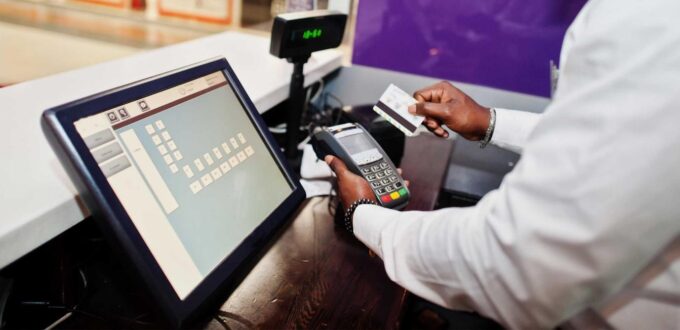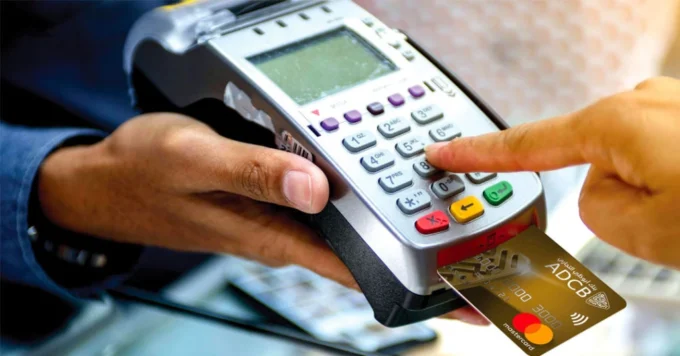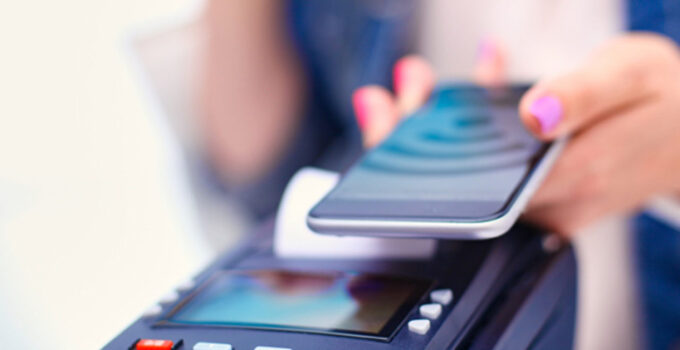The evolution of the retail sector has been significantly accelerated by the integration of the Internet of Things (IoT) with POS software. This fusion marks the advent of smart retail, characterized by unparalleled operational efficiency, highly personalized customer experiences, and robust data-driven strategies. As retailers adapt to the intricacies of today’s market, the role of IoT-enabled POS software becomes increasingly vital, offering a comprehensive solution to meet modern demands.
The IoT Revolution in Retail:

Source: tridentinfo.com
At the core of smart retail lies IoT technology, which facilitates seamless device interconnectivity. This integration within POS software systems introduces several enhancements. For instance, smart shelves with weight sensors and RFID technology can automatically refresh inventory data within the POS system, drastically minimizing discrepancies and fostering an efficient inventory management approach. A 2020 Zebra Technologies study revealed that 77% of retailers are keen on adopting IoT solutions to optimize inventory handling and enrich the customer experience, signifying a major shift towards intelligent retail operations.
Personalizing the Shopping Journey:
The capacity of IoT-enabled POS software to tailor the shopping experience is unparalleled. Analyzing comprehensive data sets, including transaction histories and in-store movements detected by beacons, enables retailers to present customized offers and recommendations at the checkout. According to research by Boston Retail Partners, an impressive 89% of retailers are eager to implement IoT strategies to individualize customer interactions in-store, underlining the critical role of technology in aligning with consumer demands for bespoke retail experiences.
Harnessing Real-Time Data for Strategic Insights:

Source: tridentinfo.com
IoT integration with POS software facilitates the acquisition of real-time analytics, equipping business owners with critical insights into consumer patterns, sales dynamics, and overall operational performance. This wealth of information supports strategic planning across various business aspects, from product placement to promotional activities, ensuring retailers are agile in responding to evolving market trends. Retailers leveraging IoT data can, for instance, reconfigure store layouts to improve navigation and maximize sales potential.
Challenges and Opportunities:
Navigating the integration of IoT with POS software involves overcoming challenges such as ensuring data security and managing the initial investment in technology infrastructure. However, the advantages, including bolstering customer loyalty, streamlining operations, and securing a market advantage, significantly overshadow these obstacles. Retailers poised to embrace these innovations are set to redefine the shopping landscape.
Exploring Diverse Solutions:

Source: techjockey.com
While Alexandria Computers is at the forefront of delivering advanced POS software tailored to a variety of sectors, acknowledging the wider spectrum of IoT-enabled POS solutions is crucial. Market participants such as Square, Vend, and Lightspeed bring forth distinct offerings, each with specialized features to cater to different retail requirements. Selecting a POS solution demands a comprehensive evaluation of its functionality, ease of integration, and potential to support business goals.
Conclusion:
The convergence of IoT and POS software is reshaping the retail industry, heralding an era marked by efficiency, customization, and deep market insights. As the sector continues to transform, integrating smart retail solutions becomes imperative for businesses aiming to excel in a digitally dominated era. The future of retail is bright, smart, and centered around the consumer, with IoT-enabled POS software at the heart of this innovative journey, empowering retailers to unlock new dimensions of customer engagement and business growth.







